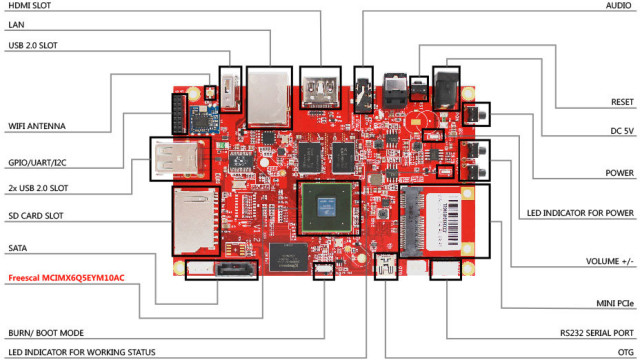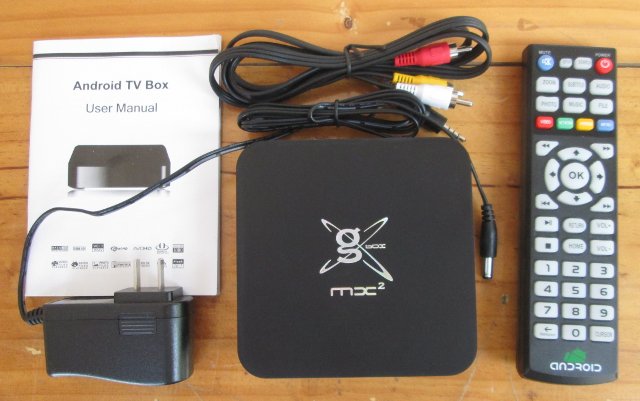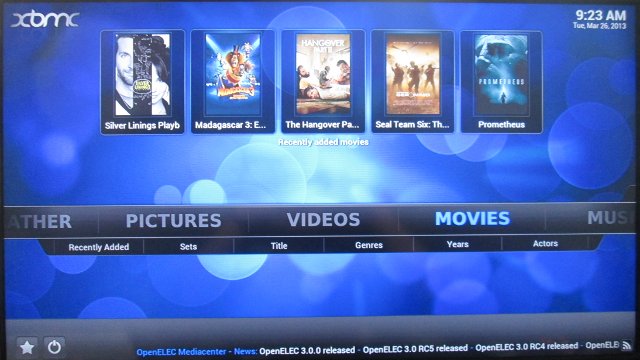TBS 2910 Matrix, also simply called TBS Matrix, is a board powered by Freescale i.MX6 Quad SoC with 2GB RAM, 16 GB eMMC, and supporting various TBS USB DVB tuners. The company provides images for Ubuntu, Android, and something called Matrix TV. The company also releases the source code for the boards, and two OpenELEC developers, namely Ovi and Vpeter, though it could be a nice idea to port OpenELEC to TBS Matrix, and that’s exactly what they did. The video demo below shows online video streaming via 1channels add-on, which can be done with any Android or Linux media player running XBMC or OpenELEC, but the second part is more interesting, as it shows Live TV from a Cable TV USB tuner connected to the board. Ovi also confirmed the system supports DVR, and you can also use the board as a micro IPTV server. DVR function is supported […]
$50 CMX Dual Core Android TV Box Runs Android 4.2, Supports XBMC Linux
XBMC Android now runs fairly well on ARM based hardware, but some people still prefer to run XBMC Linux because they want a pure XBMC experience, and Android is just an unnecessary overhead, and some features are still better supported in XBMC Linux such as frame rate switching, which is not supported in Android (You need to manually select the refresh rate in the settings). One way to go if you want to get XBMC Linux is to buy one of the boxes pre-loaded with the firmware such as Jynxbox M1V2 Pure Linux or Little Black Box. But these devices are generally significantly more expensive than their Android equivalents. So instead, some people get an Android TV box, and install XBMC Linux firmware compatible with the hardware such as MX Linux which runs on media players with a “g18ref” and “mx2ref” boards. Gbox Midgnight MX2 is one of these g18ref […]
OpenELEC 3.0.0 on Raspberry Pi – Installation and Video Tests
Yesterday, OpenELEC developers announced the release of OpenELEC 3.0.0, a lightweight OS running XBMC Frodo 12.1 for several platforms including the Raspberry Pi (OpenELEC stands for Open Embedded Linux Entertainment Center). When the Raspberry Pi was initially released, I did not feel like testing it as a media center, mainly because of codecs limitations. But over time, this has improved with the availability of MPEG-2 and VC-1 codecs (for a fee), and GPU accelerated support for free codecs such as VP6 and VP8, so today I’ve tested to give a try and install OpenELEC 3.0.0 on my Raspberry Pi. I’ll first give installation instructions, then test several types of videos container formats, and video / audio codecs, as well as give some quick impression about the performance and stability of OpenELEC on this low cost board. Installing OpenELEC on Raspberry Pi To install OpenELEC, I basically followed the instructions provided […]
MPEG2 and VC-1 Codecs, H.264 Encode and HDMI CEC Are Now Available for the Raspberry Pi
Many people appear to have bought the Raspberry Pi in order to use it as a cheap media player by installing distributions such as Raspbmc or OpenElec. The only problem is that this low cost board was primarily designed as an educational platform, so the Raspberry Pi foundation only paid for H.264 licensing, which means you could only playback H.264 videos, and all other video codecs could not be played (by hardware) making it a rather poor media player. But things have improved, as the good people at the Raspberry Pi foundation have worked out a deal with the licensing organizations and now offer support for 2 new codecs: MPEG2 license key – 2.4 GBP (~3.8 USD) VC-1 license key – 1.2 GBP (~1.9 USD) Once those 2 codecs are enabled you should be able to play your DVD rips and most HD wmv files smoothly. The way it work […]






